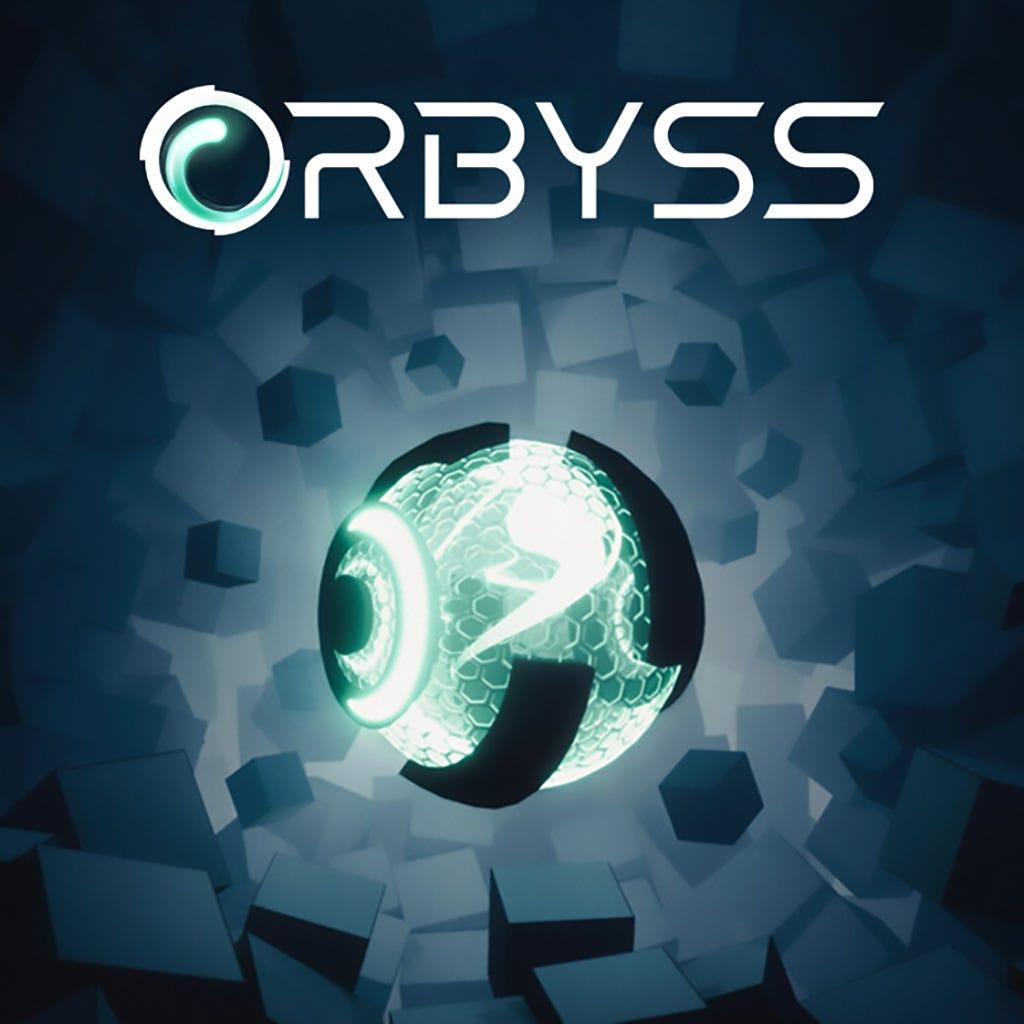Does this Abstract Puzzler Roll to Victory, or Just Come Up Short?
Introduction
Stepping into the digital realms of a new indie puzzle game is always a gamble. Will it offer a truly cerebral challenge, or simply re-tread familiar ground? Orbyss is not just another marble-rolling game; it’s a meditative, logic-based experience set in a strikingly minimalist, bioluminescent world. It tasks you, who happens to be a spark of energy, with inhabiting various Orbs to solve environmental puzzles and repel a sinister, encroaching shadow. This journey through geometric structures and energy flows is less about quick reflexes and more about meticulous planning and spatial awareness, which essentially promises an incredibly satisfying ‘ah ha’ moment when you find the solution(s)! But does its elegant simplicity hold up over the full course of play, or does its abstract nature leave you feeling cold? Read on to find out!
Navigating the Digital Construct

Orbyss’s core gameplay loop is centred on a series of over forty handcrafted puzzle rooms spread across eight chapters. As a spark of energy, you move between controllable Orbs to navigate the level, activating switches, manipulating platforms, and ultimately finding the exit chute. The narrative, while intentionally minimal and subtle, posits you in a mysterious digital realm where glowing lights and geometric architecture are being corrupted by an evil shadow. Your quest is to bring life back to this universe by solving the puzzles, which are implicitly linked to undoing the disorder caused by the malevolent force. The beauty of the story is that it doesn’t really matter if you’re paying attention or not, because the core gameplay experience is so engaging. The story is more of an atmospheric presence than an explicit tale, that only enhances the experience should you pay attention to it. If not, then you will still likely have a good time regardless.
Co-op with Yourself

The mechanics are the undisputed star of Orbyss, layered in at a measured pace that ensures each new concept is fully explored before the next is introduced. The standout feature is the ability to control multiple Orbs and switch between them instantly, essentially creating a ‘co-op with yourself’ experience (now the subtitle makes sense, right?). This enables complex, multi-step logic puzzles where one Orb might hold down a pressure plate to activate a bridge, allowing a second Orb to roll across and flip another switch.
As you progress, the toolkit expands. You gain the ability to freeze time at designated stations, locking Orbs and objects in place, a mechanic that opens up possibilities for suspended movement or holding platforms in mid-air. Later levels introduce flyable drones which house the Orb, granting free rein to explore the 3D space, and sound-based mechanics, which often involve rhythmic or tonal puzzles. Importantly, Orbyss maintains its commitment to logic over dexterity; the puzzles are designed so that the correct logical sequence and good planning are what lead to success, not split-second timing. The inclusion of an accessibility option to toggle on ‘Visual cues’ for the sound-based elements is an especially nice touch, ensuring that no player is excluded from solving these brain-teasers.
Bioluminescent Geometry

Visually, Orbyss is stunning, adopting a polished, abstract, sci-fi aesthetic, reminiscent of titles like Tron, yet maintaining a distinct, techno-organic identity. In other words, it looks great! The universe is constructed entirely from luminous Orbs, energy flows, and monumental geometric structures. The graphics – which rely on stark contrast between soft, bioluminescent glows of purples, blues, and greens – stand out against dark, shadowed pockets, emphasising interactive elements and creating a palpable atmosphere of mystery and quiet contemplation. The lighting effects are particularly well-executed, making the glowing Orb protagonist feel significant in the world.

The audio experience is equally crucial to the atmosphere. The soundtrack is ambient, subtle, and calming, perfectly fitting the overall meditative tone that Orbyss sets from the onset. The score provides a sense of continuous narrative progression without ever becoming intrusive. Ambient sounds, such as distant clicks and the chittering of drones, further immerse the player in this quiet, mechanical environment as it brings the whole world to life, even though you aren’t able to see it all at once.
Beyond the Light

Once the eight chapters of the story mode are complete, Orbyss offers a substantial amount of replay value for players who enjoy mastery and challenge. There are dozens of achievements to unlock, many of which serve as optional, highly challenging constraints for existing puzzles. These include finding optimal solutions, such as clearing a room with a limited number of Orb swaps or time freezes. These challenges encourage you to revisit levels not just to complete them, but to truly master the interplay of mechanics and find the most elegant solution, effectively doubling down on the logic-puzzle core of the game. For those of you who wish to extend your engagement, the challenge lies in the pursuit of perfection rather than new content. Additionally, the option of toggling on hints provides a gentle nudge for those who get truly stuck, aiding progression without giving full spoilers.
Conclusion
Orbyss is a truly fantastic addition to the logic-based puzzle genre. It manages to find that sweet spot between challenge and relaxation, delivering puzzles that are initially tough but satisfyingly ‘click’ into place. The game’s commitment to thought over twitch reflexes, coupled with its elegant, steadily expanding set of mechanics—particularly the self co-op and time freezing—make for an intellectually rewarding experience. While its abstract world and minimal narrative might feel a touch cold to some, the strength of the core gameplay loop and the polished, atmospheric presentation carry the experience. It’s a game that makes you feel genuinely clever.
Pros
- Puzzles are smart, well-designed, and logically satisfying.
- Impressive variety of mechanics.
- Meditative yet immersive atmosphere and soundtrack.
- Control of the Orbs feels precise and responsive.
Cons
- Replay value is tied almost exclusively to optional achievements and mastery.
- Controls require some dexterity for precise movement.


